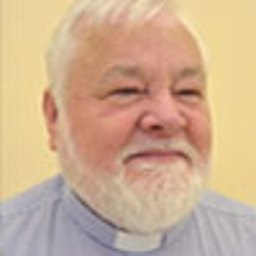Amid all the difficulties of this time—a lingering pandemic; violent protests; fears and anxieties; the sudden premature death of a close friend—I’ve been thinking about hope.
I remembered a television ad I saw several years ago. As a man swims in the ocean, a young girl comments, “There are man–eating sharks in every ocean … but we still swim. Every second, somewhere in the world, lightning strikes … but we still play in the rain. Poisonous snakes can be found in forty–nine of the fifty states … but we still go looking for adventure. Cars can crash and houses can crumble, but we still drive, and we love coming home. Deep down, we know all the bad things that can happen in our lives can’t stop us from making our lives good.” In the final shot, we see the words, “People live for good.”
There is a defiant hope in this ad. It acknowledges the dreadful things that can happen. It tells the truth that sometimes life sucks.
But that truth doesn’t define our life. Pain is intermingled with joy and goodness. The commercial suggests that we will find the good if we don’t let the threat of the bad deter us from living life fully. There is a poignancy in hearing that message spoken by a young child; it testifies to the fragility of hope, but also points to the courage it takes to seek the good.
Hope is like that; it is both fragile and powerful. It is fragile because it exists against all odds and in the face of much that seems hopeless. It is powerful because it creates new possibilities, and it multiplies as we share it.
As I reflected on hope, my mind turned to Desmond Tutu and Jack Layton.
In a 1999 interview, Bill Moyers asked Archbishop Tutu, “When you were a parish priest, you helped so many people deal with their grief [and] loss. How have you grieved?”
Tutu answered, “Well, as I say, I cry easily. In many ways, it’s a gift. It’s a sign of vulnerability and weakness and knowing that one doesn’t have resources within one’s self. It throws you back on God, which is quite wonderful.”
The Arch described my life. I was adrift. I felt as if I could no longer go on alone. All I felt was the raw pain of my friend’s death on top of everything else. But the days passed, and I shared that pain with others who felt the same loss. The burden lightened. The light shone a little more brightly. I still cried, but my tears cleansed my soul now instead of being bitter. Hope returned as a gift. As Tutu often said, “Goodness is stronger than evil. Love is stronger than hate. Light is stronger than darkness. Life is stronger than death. Victory is ours through Him who loved us.”
That led me to Jack Layton’s powerful final letter to Canadians two days before his death in August 2011: “My friends, love is better than anger. Hope is better than fear. Optimism is better than despair. So let us be loving, hopeful and optimistic. And we’ll change the world.”
That kind of hope doesn’t come easy. It’s not a simple optimism that everything will turn out all right. Deep hope takes time and intention. We must dare to become open and be willing to be vulnerable. Above all, it takes courage, because it’s easier to fall into despair and give up. It’s easier to turn a blind eye to the ugliness in our world and pretend that those things aren’t really happening.
But we remember those whose powerful and fragile hope led them to act. They are our heroes: Terry Fox; Nelson Mandela; Martin Luther King, Jr; Candice Lightner, who founded Mothers Against Drunk Driving (MADD) following the death of her daughter who was killed by a drunk driver.
It takes courage to hear the truth, to seek a way through the pain, and then to become agents of change. Hope reconnects us with the world; it challenges us to make things more whole; hope confronts us with the choice to act for the well–bring of the world, and compels us to choose life over death, light over darkness, healing over pain.
Hope is born in the midst of pain, a powerful gift which lifts us so that we can act in love and faith, in community with other people, to make the world more whole.
As the commercial reminded us, hope is a way in which “people [can] live for good.”

